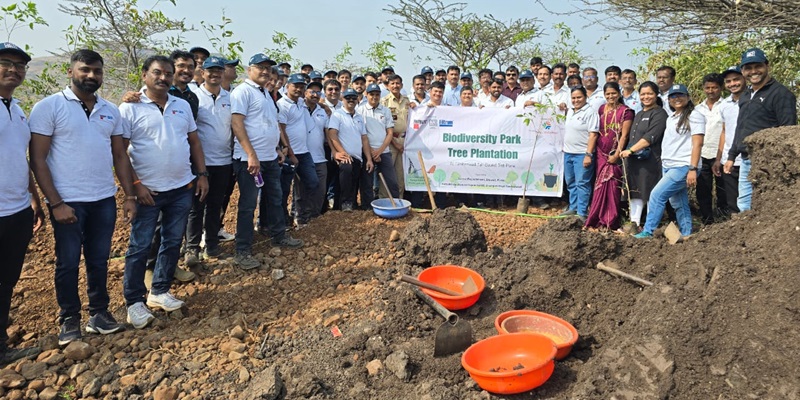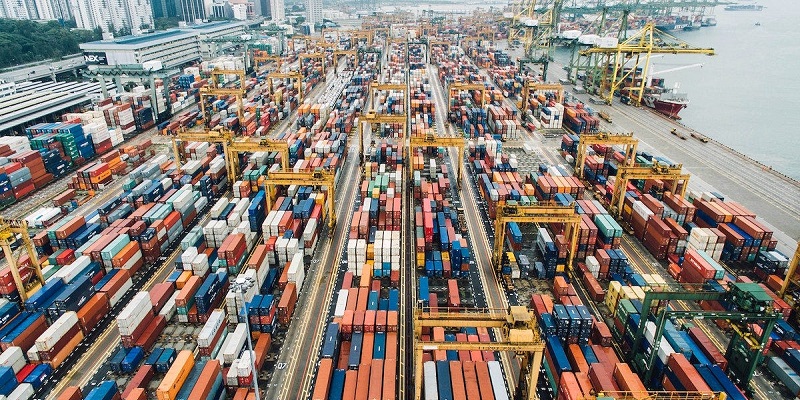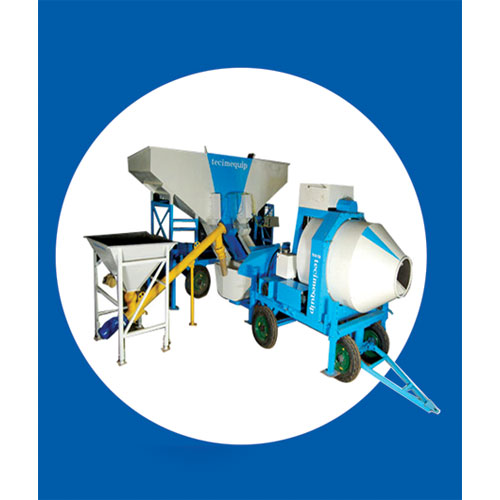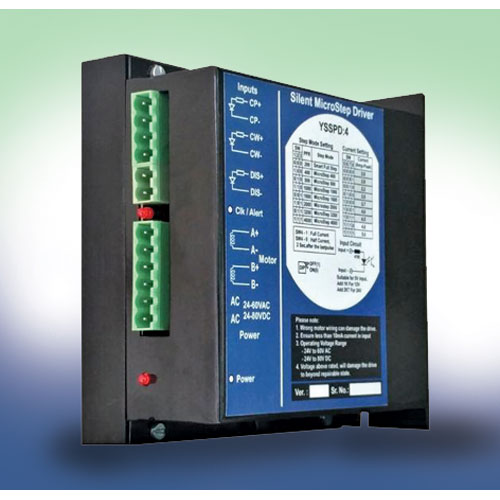Schedule a Call Back
Pumps & Valves: The good times continue
 Technical Articles
Technical Articles- Nov 30,-1
Since the last decade, India has been emerging as a major manufacturing hub for various industrial products owing to availability of large qualified workforce, huge emerging markets and low cost of production. And this portfolio includes pumps and valves too.
There’s always the good news and the bad news. In this case, it’s only the former. With huge investments expected in various sectors coupled with expansions and new projects, the market for pumps and valves is expected to grow at 14-17% CAGR over the next five years. As such, the momentum predicted for the period 2012-16 at 15.60% isn’t likely to slacken, more so now because the good monsoon so far clearly implies that there will be a good demand for pumps, in particular. Moreover, one of the key factors contributing to this market growth is the increasing demand from process manufacturing industries. Simultaneously, providing fillip to the industry is the unflagging development of next-generation valves and pumps. If at all, there is a bit of negativity, it comes from the increasing raw material prices.
Given this scenario, some of the key players in this space, such as Altlas Copco AB, CRI Pumps, Crompton Greaves, Elgi Equipments, Flowserve Corporation, Ingersoll Rand Inc., Kirloskar Brothers, Kirloskar Pneumatic, KSB Pumps, L&T and Pentair, among others, will continue to move forward at a good trot. Commenting on a report about the industry, Yusuf Ali, Consulting Engineer, Raj Pumps, Pune, says, “The pumps and valves market in India is witnessing a steady transition from the usage of conventional valve types to automatic valves. It is expected that during the forecast period, the automatic valve types will witness increased growth in terms of adoption than the conventional valve types, especially due to the growing need for productivity from the process industries. There will be increased demand for automatic valves from process industries owing to several enhancements in the operational efficiencies of the industrial production processes.”
The technology of pumps has been changing continuously to make them more efficient, compact and modular to suit multiple products. With energy efficiency being the keyword for every industry, pumps are being designed keeping in mind the various aspects of not only the energy but also to suit the requirements of variable loads and also for inter-changeability. The use alternate energy sources like solar is on rise to drive the pumps, more so in agriculture and domestic applications. Even government departments taking care of water and sewage disposal are now shifting to greener power sources,” Ali points out. Even the valves’ technology has changed from merely being a mechanical object to start or stop or control the flow to a sophisticated device with remote control systems and inbuilt sensors for self controls.
Industry overview
In India, the manufacture of pumps has by now a history of nearly 80 years. Pumps being the basic equipment for every sphere of the national economy, the Indian pump industry has in its own growth, contributed immensely to the economic growth of the country. The enterprise in the Indian pump industry merits appreciation for the achievements of prompt and competent indigenisation of almost every type of pump, of pumps in gigantic sizes, of pumps of a variety of constructional features and operational sophistications, and of pumps in a variety of materials of construction. According to Bharat Patel, President, Indian Pump Manufacturers Association (IPMA), the total turnover of the pump industry in India is estimated to be over Rs 20,000 crore with agriculture pumps having the biggest share of the pie at 43%, followed by domestic (30%), industrial (13%), irrigation (6%) and miscellaneous (8%).
“The agriculture pump market in India was valued at about Rs 8,600 crore in 2014-15, and is expected to grow at 7-8% annually. Agro pumps growth depends on government policy and investments along with the monsoon. Meanwhile, fluctuations in ground water level has also increased the demand for agricultural pumps in the market, not to forget rising population and urbanisation,” Patel says, adding that innovation has certainly played a very significant role in the growth of the Indian pump industry. “There have been several notable achievements such as the cost-effective manufacturing of fabricated stainless steel pumps to increase efficiency, designing pumps as per the fluctuating power supply in India, development of solar pumping systems for rural regions, sea water pumping systems of power generation, etc,” he adds.
Meanwhile, India’s economic growth may give a big boost to the valves industry, which is likely to grow at 25% per annum to touch USD 5 billion by 2020 from the present USD 2 billion, industry officials state. “In view of the setting up of large power and petrochemical units, there will be a huge demand for valves. While the present Indian valve industry is worth USD 2 billion, the global market has been pegged at USD 60 billion,” said I S Malhotra, chairman of CII Valves & Actuators Division and managing director of Pentair Valves and Controls at an event organised by the Confederation of Indian Industry last year. “We need to upgrade our infrastructure so that India can produce high-end engineered valves,” he added.
According to a report by TechSci Research titled ‘India Industrial Valves Market Forecast & Opportunities, 2020’, India’s industrial valves market is largely dominated by organised manufacturers and is expected to witness double-digit growth at a CAGR of 13% during the forecast period. Over the past two decades, many of the leading global valve manufacturers have identified India as a high potential market for valves and thus entered the market. Leveraging their expertise and technical know-how, these players have been able to identify the potential applications of valves in various industrial applications and process industries. In 2013, L&T Valves emerged as the market leader in industrial valves market, followed by Virgo Valves and Controls, Tyco Valves & Controls, BDK Weir, Emerson, Microfinish, MIL, KBL and Technik. By 2020, it is expected that L&T would continue its lead in the market. Oil and gas pipeline infrastructure is growing at a higher pace in India. Penetration of natural gas pipelines is increasing robustly in the country on account of decline in domestic production of natural gas. “The Government of India has announced the introduction of the first cross-border pipeline of natural gas in the country. Presently, India imports gas in the form of LNG from gas-rich nations such as Turkmenistan, Iran and other Middle East countries. The government’s plans to install TAPI pipeline covering Turkmenistan, Afghanistan, Pakistan and India would be approximately 1,680 km in length. Construction of this pipeline is expected to surge the demand for valves in India,” said Karan Chechi, Research Director with TechSci Research.
Taking it Forward
There are some leading players in the pumps and valves industry that have driven both innovation and growth. KSB Pumps Limited is one such company with expertise in centrifugal end suction pumps, high pressure multistage pumps, industrial gate, globe, check valves, submersible motor pumps, monobloc and mini monobloc pumps and hydropneumatic systems. A comprehensive range of pumps and valves are manufactured from the facilities of KSB Pumps spread over six centres in India with each facility dedicated to a product line. All the pumps and valves are offered to the market through a very wide distribution network comprising four zonal offices, 15 branches, over 800 authorised dealers, four service stations, 150 authorised service centres and 22 godowns.
In recent times, KSB has launched new monobloc pumps – Etabloc. Pump and motor connected in one compact unit results in an extremely compact and space-saving design. Etabloc pumps find large applications in industrial as well as the construction segment. The pumps are designed to handle clear water, cooling water, swimming pool water, drinking water, spray irrigation, heating and ventilation, condensate, etc. There are 43 different sizes of pumps that can deliver heads up to 160 metres with flow of up to 640 cubic metres per hour. Motors up to 110 kW can be coupled with the pumps. Meanwhile, the company has also introduced a new dewatering pump – Monosub Reg D. These pumps are useful for dewatering of storm water and rainwater flooding.
Taking into account the growth curve predicted for this industry, KSB Pumps announced an expansion plan of Rs 250 crore in a BSE filing on July 24, 2015. The company, which will spend the capex over five years, will set up a new plant for manufacturing high-end engineered pumps for super critical thermal power plants. The company will manufacture these products as a part of the ‘Make in India’ initiative under a technology transfer and license agreement with KSB AG, Germany. The aim is to commence commercial production in a phased manner from 2017 onwards.
Another significant player is Kishor Pumps. Established in 1963, the company has been partnering industry majors across the world with its wide range of pumps with applications that include sea water desalination, fertilisers, petrochemicals, pharmaceuticals, power generation, food and beverages, agro chemicals, slurry handling and waste water treatment. “In addition to resource efficiency, every product is designed to ensure that it can be reused or its components recycled to the maximum possible extent after the product has performed its desired duty over its life. In essence, at Kishor Pumps we follow a cradle-to-cradle product design philosophy instead of a cradle-to-grave design philosophy. We deeply believe in the urgency to reduce the wastage of natural resources, reuse the product, and recycle it at the end of its life,” its website states.
The sustainability concept is also echoed by Kirloskar Bros Limited, taking into account the rising energy costs and scarcity of water. “When KBL embraced green business practices for their pump manufacturing facility in Dewas, besides industry awards and certifications, their reduction of 30% in specific energy consumption and 40% in water consumption provided a huge boost to the balance-sheet as well,” their website states. Established in 1888 and incorporated in 1920, KBL is the flagship company of the USD 2.1 billion Kirloskar Group. KBL provides complete fluid management solutions for large infrastructure projects in the areas of water supply, power plants, irrigation, oil and gas, and marine and defence. It engineers and manufactures industrial, agriculture and domestic pumps, valves and hydro turbines.v In 2003, KBL acquired SPP Pumps, United Kingdom and established SPP INC, Atlanta, USA, as a wholly owned subsidiary of SPP, UK to expand its international presence. In 2007, Kirloskar Brothers International B.V, The Netherlands and Kirloskar Brothers (Thailand) Ltd, a wholly owned subsidiary in Thailand, were incorporated. In 2008, KBL incorporated Kirloskar Brothers Europe B.V (Kirloskar Pompen B.V since June 2014), a joint venture between Kirloskar International B.V and Industrial Pump Group, The Netherlands. In 2010, KBL further consolidated its global position by acquiring Braybar Pumps, South Africa. SPP MENA was established in Egypt in 2012. In 2014, KBL acquired SyncroFlo Inc, the largest independent fabricator of commercial and municipal domestic water booster pumps. To further strengthen its global position, in 2015, Kirloskar Pompen B.V acquired Rodelta Pumps International, The Netherlands.
KBL has joint venture cooperation with Ebara, Japan since 1988 for the manufacture of API 610 standard pumps. Kirloskar Corrocoat Private Limited is a joint venture with Corrocoat, UK since 2006. KBL acquired The Kolhapur Steel Limited in 2007 and Hematic Motors in 2010. The company has eight manufacturing facilities in India at Kirloskarvadi, Dewas, Kondhapuri, Shirwal, Sanand, Kaniyur, Kolhapur and Karad. In addition, KBL has global manufacturing and packaging facilities in Egypt, South Africa, Thailand, The Netherlands, United Arab Emirates, United Kingdom and United States of America. KBL has 12,700 channel partners in India and 80 overseas.
Yet another strong entity is CNP Pumps India (P) Ltd, one of the fastest growing companies for sheet metal stainless steel pumps. Started in 2005 near Mumbai, CNP India has grown to be a major manufacturer and supplier of pumps for industrial applications in the country. It supplies vertical multistage and horizontal multistage pumps for water treatment application; particularly CDLF series pumps are the standard in RO feed application used by over 3,000 water treatment OEMs across the country. Apart from water treatment, CNP pumps are used for other applications too, e.g., boiler feed (CDL series pumps), bottle filling machines (CHL series), chilled water circulation (CHLF T series), sanitation and CIP system (CHLF series), filtration system (ZS series) and coolant circulation (CDLK series).
Looking ahead
With the expected potential drawing international pump and valve manufacturers to India too, expansions and greenfield projects are now a common feature of this industry. “All major pump manufacturers have either set up their manufacturing units in India or are in the process of doing so with the help of their local partners in business. We can foresee India developing as a manufacturing hub for the world market,” is the opinion of Milind Alwekar, Managing Director, Chemlin Pumps & Valves. According to V Krishnakumar, Vice President (Sales and Marketing), Aquasub Engineering, the ‘Make in India’ initiative will give a boost to all domestic industries, including the pump industry. “Pump being an essential part in any process is an important product. Whether it is used for clear water or dirty water or any other chemicals, you need to have pump construction along with that. When thrust is given to agriculture, the demand for agricultural pumps and irrigation pumps will have a huge demand,” he said during an interview in May 2015.
To reiterate, innovation is the keyword in the pumps and valves industry and the demand is for intelligent pumping solutions. According to Mahathi Parashuram, Head – Marketing and Public Affairs, Grundfos India, some of the growing trends seen in the industry are energy-efficient pumps to magnetic drive-based water pumps; engineering, procurement and construction-based water pumps, pumps controlled through mobile phones, sharing of signals between two pumps and pumps communicating with monitoring systems. “Innovation is the heart of Grundfos. We recently launched our TPE3 range of pumps, which is one of the most intelligent ranges of pumping solutions available in the country. The specialty about this pump range is that it has the capacity to communicate between two pumps to maintain high level of operational efficiency with only minimal manual controlling required,” she is quoted to have said in an article.
There are many sub-sectors that are adding value to the growth of pumps and valves market. According to Alwekar, the three major sectors that would play an important role are oil, gas and petrochemical; steel industry; and power sector. Other sectors too will show a moderate rise. The low availability of water and the increasing demand for delivery and treatment of water will give a boost to the water treatment industry and in turn the demand for pumps. The rising consumption and decreasing supply of uncontaminated water is pushing up the market of desalination plants for treating seawater, in which pumps play a major role. However, there are challenges too, one of the major ones being low-cost local competitors in the mostly unorganised sector. This leads to promotion of unhealthy trade. Also, the non-uniform tax structures and frequent changes in input costs, viz., power and labour add to the limitations faced by Indian manufacturers to enter into long-term contracts with their overseas’ partners on price issues. Improvement in infrastructural facilities and better connectivity with tier 2 and smaller cities is also required. “What has helped though is the continuous improvement in foundry technology. This is reducing the gap between price and quality of Indian products and those sourced from abroad. However, for some special applications in the nuclear power and oil sector, foreign companies are still better in regard to technology and better metallurgy of the pump components,” says a pump manufacturer.
– HUNED CONTRACTOR
* The pumps market in India is hugely driven by ever-growing industry segments such as oil and gas, power generation, water and waste water, metal and mining, chemical and petro-chemical, pharmaceuticals, etc.
* India exports to around 70 countries worldwide and this will grow twice over the next two years.
* India’s growing share in export market is concentrated more on destinations like Middle East, North Africa alongside USA, Germany, Russia, China and Latin America.
* The Indian valve industry constitutes more than 600+ valve manufacturers and around 95% are from the micro, small and medium enterprises category.
* The Indian government’s ‘Make in India’ campaign has already attracted numerous investors to explore market avenues and tie up with process industries.
Related Stories
15th Cement EXPO: A Step Forward in Cement Innovation
Cement EXPO 2025, which will be held along with the 10th Indian Cement Review Conference and the 8th Indian Cement Review Awards, promises to be bigger, drawing in greater participation, fostering m..
Read more
Fleetguard Filters undertakes mega plantation drive under CSR initiative
FFPL via the NGO and gram panchayat will be contributing to maintaining the biodiversity park for a tenure of three years.
Read more
GTRI urges simplified customs duty structure to boost manufacturing and exports
According to GTRI, currently, 85% of tariff revenue is generated from just 10% of tariff lines or product categories, while 60% of tariff lines account for less than 3% of total revenue.
Read moreRelated Products

Mobile Batching Plant
Tecimequip Engineering offers a wide range of mobile batching plants.

Compact Speed Vector Drives
Confident Automation offers compact speed vector drives.

Microstepping Motor Driver
Yugandhar
Systems offers a silent microstepping motor driver – YSSPD 4.














